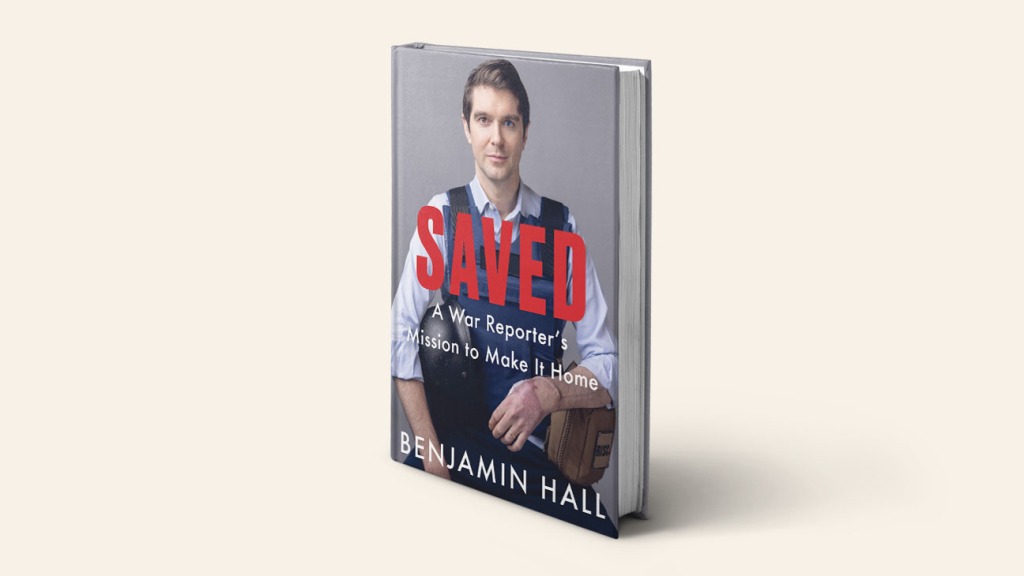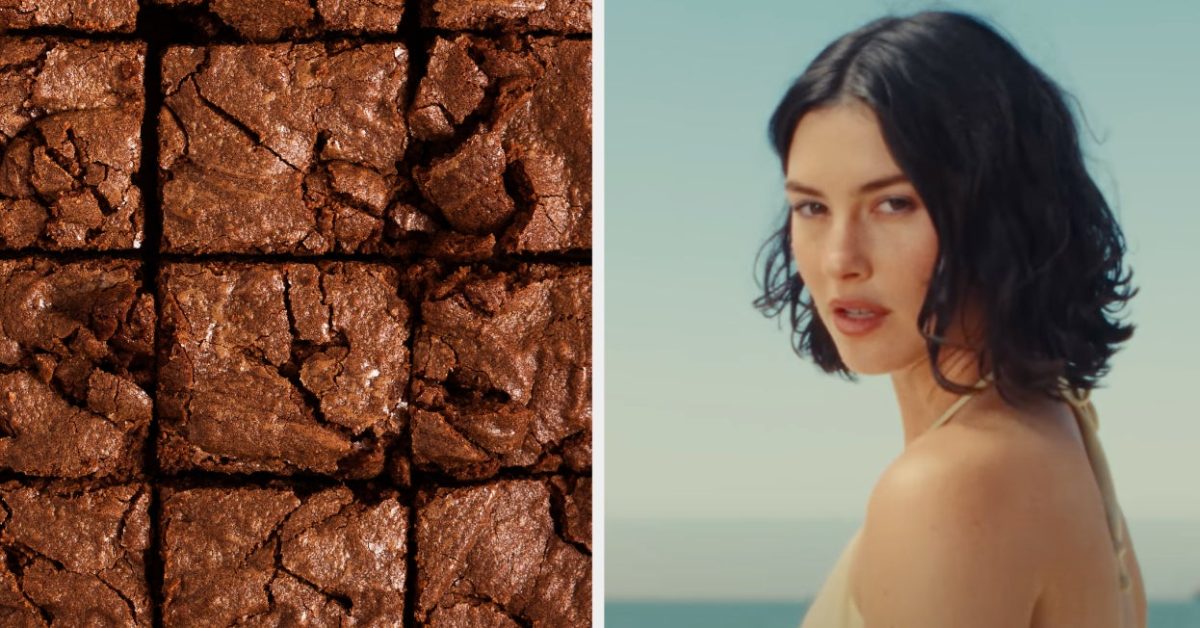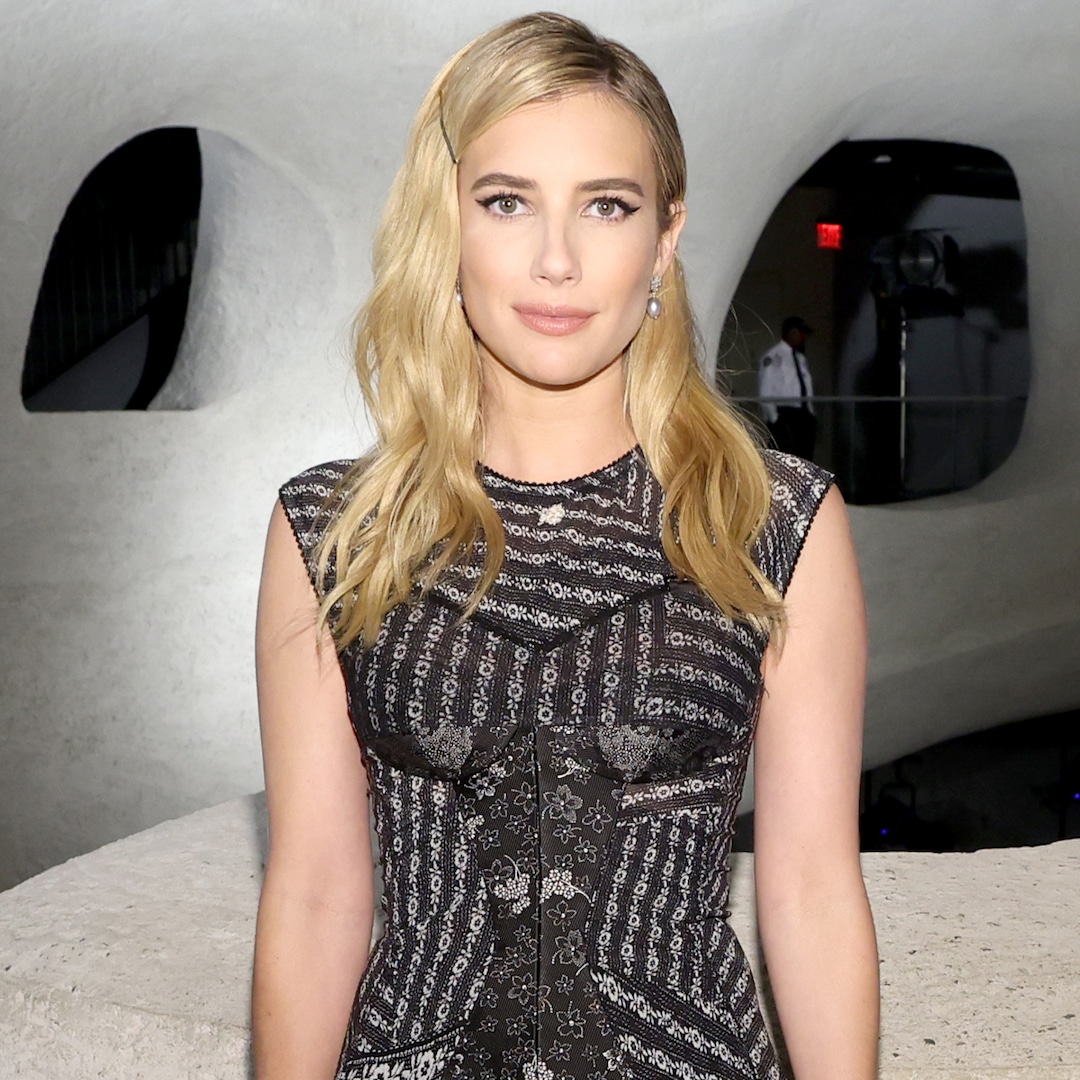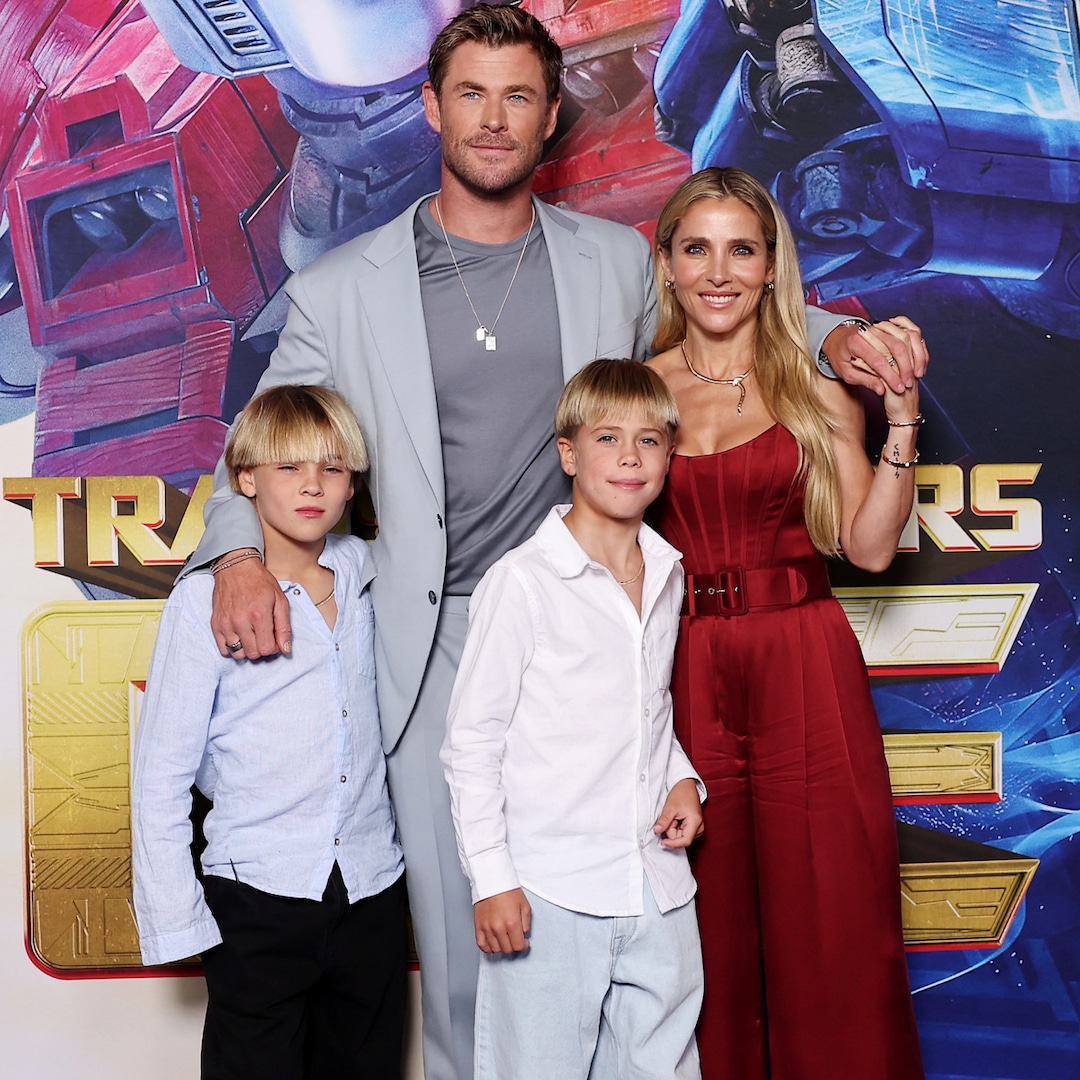
Correspondent Talks ‘Saved’ – The Hollywood Reporter
Mar 13, 2023
On March 14, 2022, a Fox News crew reporting in Ukraine came under fire from a barrage of Russian missiles. The cameraman, Pierre Zakrzewski, and a local journalist who was working as their translater and fixer, Oleksandra “Sasha” Kuvshynova, were killed in the attack.
The correspondent, Benjamin Hall, survived, albeit barely. He lost one leg and the foot on his other leg, he lost the use of one of his hands, and shrapnel cost him one of his eyes.
His survival, and the astonishing effort to get him out of Ukraine and back to the U.S. for medical attention, is the subject of a new book by the journalist, Saved.
The story is at times something out of a spy novel, with Hall and his team breaking Kyiv’s curfew to catch a train carrying Poland’s Prime Minister, a train which would ultimately get him out of the country; and the Secretary of Defense signing authorization papers to bring Hall to a U.S. military hospital while flying on a Boeing E-4B across the ocean.
Fox News will also air a documentary based on Hall’s memoir called Sacrifice and Survival: A Story From the Front Line, on Sunday March 19 from 9-11 PM. The doc will include video footage shot by Zakrzewski in the minutes leading up to the attack.
Hall spoke to The Hollywood Reporter about his book.
How are you doing? How are you feeling?
You know, in many ways, it’s been great. I spent the last year recovering. I’ve been thinking about it and the recovery can be quite boring. I’ve had to get another physical and see a doctor every single day, and what I’ve been looking forward to doing is working again, talking again, talking to people, not just about what happened but about the future. We’re almost one year in and I feel like I’ve come a long way, I feel like I healed up well. Mentally, I’m strong. I think so far so good.
I was reading your book, and I have got to say it was it was really vivid and gripping. Honestly it was almost like a spy novel at times. But I wanted to ask, as you began the process of thinking about what you wanted to write and how you wanted to write, what was your goal when you began that process and how did it evolve?
Within a couple days of the attack I started to think about it, I knew I had to document what was happening to me and my own recovery and the attack. I’m sure it’s the journalist in me, but I knew I wanted to record that and I wanted to think carefully about what I’ve gone through, and I wanted to address any of the concerns I had and to really think about what happened. So I knew early on that I needed to address those and I needed to write those down and think about myself. But then very quickly, I started talking to the people who were behind my evacuation and the doctors who were around me, and I found them to be absolutely inspiring real heroes. And you know, for the first couple of months, I was still learning new things about the way they got me out and the evacuation and people came to visit me… each one telling me more stories about it. I think it was really helpful and cathartic for me to start to put those thoughts down.
One part that stuck out to me was a scene set in the hotel the Intercontinental in Kiev, when [Fox News correspondent] Trey [Yingst] and the other journalists there were trying to figure out what happened. What was the process like for you to essentially report out what was happening on the other side while you were grappling with the unbelievable attack that it just happened?
I mean, it was just talking to people, and that’s what was really helpful to me, you know, talking to Trey, talking to Mich (Pierre Zakrzewski’s wife Michelle Ross-Stanton] and Seaspray [a pseudonym for a member of the team who helped Hall escape Ukraine]. I suppose in some sense, that’s what we do every day in our job, you know, you listen to stories and you put them down and you pull out the strands that you think are the most interesting, and the fact that I was the main character, I don’t think changed exactly how I was how I wanted to tell the story. It was as I probably would have done when I was telling the story about something else before this happened.
You are obviously a veteran foreign correspondent, you’ve been to conflict zones before. But there was one line in your in your book that I jotted down just because it stuck out to me. You wrote: “The paradox of covering war is that while the job exposes you to unimaginable horror, you also have to love doing it.” And I wanted to ask, what did you mean by that? Why was this type of journalism, this type of reporting so important to you?
You know, when I started covering conflicts, part of it was about adventure. I loved doing it and I thought that I was on the real peak of geopolitics and war, but… I started to realize that at its purest this is where human emotions are, at their core. It was about the only place where you could really learn about human nature and what makes people do things, about how they react when they’ve lost everything, when they’ve got everything to fight for. Nothing else replicates that for me. There is nothing. I find that just absolutely incredible in some sense. It’s the whole purpose of the light, if you take away everything around us, all the gadgets and the gossip and what we have, and that’s what you’re left with, and I find that really rewarding. I really did and I loved it. I loved the people who I was with because you’re all like-minded, you know, you’re all there together and you’ve all got a real shared passion. And people open up to you in incredible ways when you’re out there, and you’re talking to people who have lost everything.
So all of those came together and I just found it to be incredibly rewarding. And it’s something that I could never replace, there was nothing else I did that really gave me as much passion as covering conflict and being there to see it. When Ukraine broke out I knew I needed to be there. I needed to be there, I needed to be telling that story and the story of the people caught up in it.
There was a section in the book about leaving Ukraine on the Prime Minister of Poland’s train. That was an unbelievable story. You knew that was happening in the moment, I assume. But as you kind of began putting that pen to paper, so to speak, how did you begin to collate that and tell that amazing story? There’s also cameos from Secretary of Defense Austin, [Secretary of State] Antony Blinken, it’s really at the highest levels of government with multiple countries involved in this escape, breaking a curfew. It’s just unbelievable. As you relived it, as you began thinking about what happened through your own experience, and also talking to others, what was it like to put that together?
Well, first of all, I’m deeply honored that so many people came to help me but also incredibly proud and very proud also that, when someone is in trouble, an American is in trouble, people risk their own lives to come and get you.
And with the Polish Prime Minister it actually took me a while before I really understood that I was on the train with him. Then I was talking to Blinken in the hospital as well, and he called me and I remember I was at that point covered in blood, and trying to interview him.
You know, many pieces of that puzzle fell into place just at the right time. Like if it had been a day on either side, a lot of those teams wouldn’t have been there. So call that fate. But everything fell into place so perfectly from the person who found me and saved me, to the doctors who just happened to be at the hospital and managed to save me that first night. The fact that [Fox News national security correspondent ]Jen Griffin was sitting next to [then-DoD press chief John] Kirby when she found out that happened straight away. So many little moments. It all happened at the right time. Had any one of those have not been there I might have might not have been safely taken out.
There were so many interesting characters that were in the book, some of them just for one or two sentences, some that were recurring, like Jock [Fox’s security chief in Ukraine], there was a memorable anecdote with George W. Bush. Like there’s a lot of really interesting and engaging people that were part of this story. Did you know in the moment when you were talking to President Bush or you’re talking to a doctor in Texas, were you mentally making notes here? Or was it really kind of thinking back after the fact and beginning to piece it together?
You know, what was interesting is that for much of the recovery there were two of me: One who felt exactly like the old us, and the new me, and I changed in many ways. I’ve experienced so many different things that I feel like I’m also a totally new person. And I could never tell in those discussions whether it was the old me talking to them, who would have just asked questions like a journalist would have asked, or whether it was the new me who in some sense could talk far more openly about the injuries and other people who’ve gone through them.
I think part of recovery when you go through something as drastic as this is finding the new person and coming to terms with the differences, what’s changed in so many of those phone calls. I was still, I think I was in the middle, and I was both of those people.
That’s something you wrote in the book. I think you wrote about the “duality” that you cultivated, “the Ben who went away to cover wars and the Ben who came back to London in search of a normal way to live. The challenge was always going to be bringing those two Bens together into one functional person.” Can you can you explain that to me?
You know, when I was covering wars for the first time, for a month you’d be at the front lines living one life sleeping on the floors or in caves, and then you take a flight home to London, you’d be surrounded by all the people who you knew who were lawyers and bankers. You wanted a life, you wanted kids and a family and yet, that was difficult to reunite the two, and I remember trying to figure out, could I be both? Do, I have to move for example, to the Middle East? Live there for years to embrace that? Or do I stay in the U.K.?
As I said in the book finally those two really have become one, because I brought home some of the horrors and the injuries and the badness that you see out there. They are with me now, every single day. It’s always difficult as a war correspondent to speak to people when you go out to Syria or Iraq or wherever it is, and you spend a few weeks with them and you see their world. But then you say goodbye. And that’s it. They’re out there but you come home, you go back to your nice hotel, you fly home and you’re totally fine. It’s quite mentally difficult. Well, now, I bring that stuff back with me. You know, it comes home and that’s the new me.
You do say towards the end of your book, “I hope that I’ll be able to return to being a journalist in some way. Who knows, maybe I’ll even be able to get out in the field and talk to people.” What are you thinking about as you look ahead to the future? To me didn’t sound like you were 100% certain that was the future for you.
When I was writing the book and looking ahead to the future, I wanted to be open to a whole lot of ideas, and there are lots of things I want to do that aren’t connected to journalism. I feel really strongly that I was in many ways saved by the people who, who came out for me, you know, the real positive community. I want to make sure that I can help in as many ways as I can, talking to people who have been injured, helping those doctors or those other physios who help others. So I want to do that a lot.
But I do want to get back to journalism. And in the last few months, I know that more than ever. I want to tell the stories of some of these people as well. And I think that I can take the journalism that I was doing before and bring in some of the experiences I now have, and tell the stories of the people who have gone through difficult situations. I think I’m still figuring out exactly what I want to do. To be honest, I just want to do everything. I feel so restless. You know, I’ve been recovering for a year. I want to do as much as I can. Like I have come out of this with a real love of life. There’s so much good out there. I’m not scarred by the evil and the horror that happened to me. I’m actually inspired by the goodness I saw and I want to go and experience that and share that as much as I can. So I’ve been inspired to get back to work for a long time. I just have got to figure out exactly how I do it and how much of it I can do.
On a serious note, I was also struck by the care and consideration when you had discussing Pierre [Zakrzewski] and Sasha [Oleksandra Kuvshynova], your colleagues in Ukraine that were killed when the convoy was attacked. What was the process like for you to relive that, to report on what had happened to you? How do you how do you go about reliving or reporting on what was you know, such a horrific moment for you and for them?
I think back to that moment, every day, I think back to lying on the ground, I think back to sitting next to Pierre [in the car before the attack]. I try as hard as I can to remember what it felt like, and in a strange way it gives me strength. One way I realized that if you can get through that you can get through absolutely anything. In another sense I realized that I had to remember that point forever. Because if you don’t make the best of everything, then Pierre’s life is going to waste as well. And so I’ve harnessed it and I think that it’s made me stronger. It’s made me a stronger person, It’s made someone who realizes what good can be done and needs to be done.
So… I think about it, it’s part of me and it would be wrong not to think about it. I think it would be far more harmful if I didn’t think about it. You know, if I tried to hide away how I felt, or if I didn’t address it, even talking about it, talking to my wife about it, talking to everyone about it and think that way you can really stay on top of it.
Alicia [Hall’s wife] and your kids were such a motivating force throughout the book, it was something that you returned to, the desire to kind of play with the kids again. It’s such a powerful thing, and it came through.
You know, you get married to someone in sickness or in health. And that’s been put to the test here. And, you know, I couldn’t have done it without her and my children couldn’t have done it without her.
I never take things for granted. You know, those small things or small moments that you have with your children, that hug in the morning. Which I think I had taken for granted myself in the past, that just now I just get absolute joy from it. I realize how special it is, how lucky I am to have that. I’ve been gifted that, you know, I’ve really been given gift and I’m lucky to have found it.
This interview has been edited for length and clarity.
Publisher: Source link
Eat Some Food And I’ll Recommend You A Gracie Abrams Song To Listen To
"That’s So True!"View Entire Post › Disclaimer: This story is auto-aggregated by a computer program and has not been created or edited by filmibee.Publisher: Source link
Dec 29, 2024
Emma Roberts Shares Rare Photos of Lookalike Son on His 4th Birthday
Emma Roberts is celebrating another year around the sun for her baby boy. The American Horror Story: Delicate actress marked her and Garrett Hedlund’s son Rhodes 4th birthday with a series of sweet pictures. Showcasing just how much little Rhodes…
Dec 29, 2024
It's Time For The Ultimate "Would You Rather": Hot Guys Vs. Christmas Food Edition
Decisions, decisions.View Entire Post › Disclaimer: This story is auto-aggregated by a computer program and has not been created or edited by filmibee.Publisher: Source link
Dec 28, 2024
Chris Hemsworth and Elsa Pataky Share Rare Photo with Their 3 Kids
Chris Hemsworth’s family Christmas is truly something to marvel over. In honor of the holiday season, Elsa Pataky shared a photo featuring her, her husband, their daughter India, 12, and twin boys Sasha and Tristan, 10. The Fast and Furious…
Dec 28, 2024











